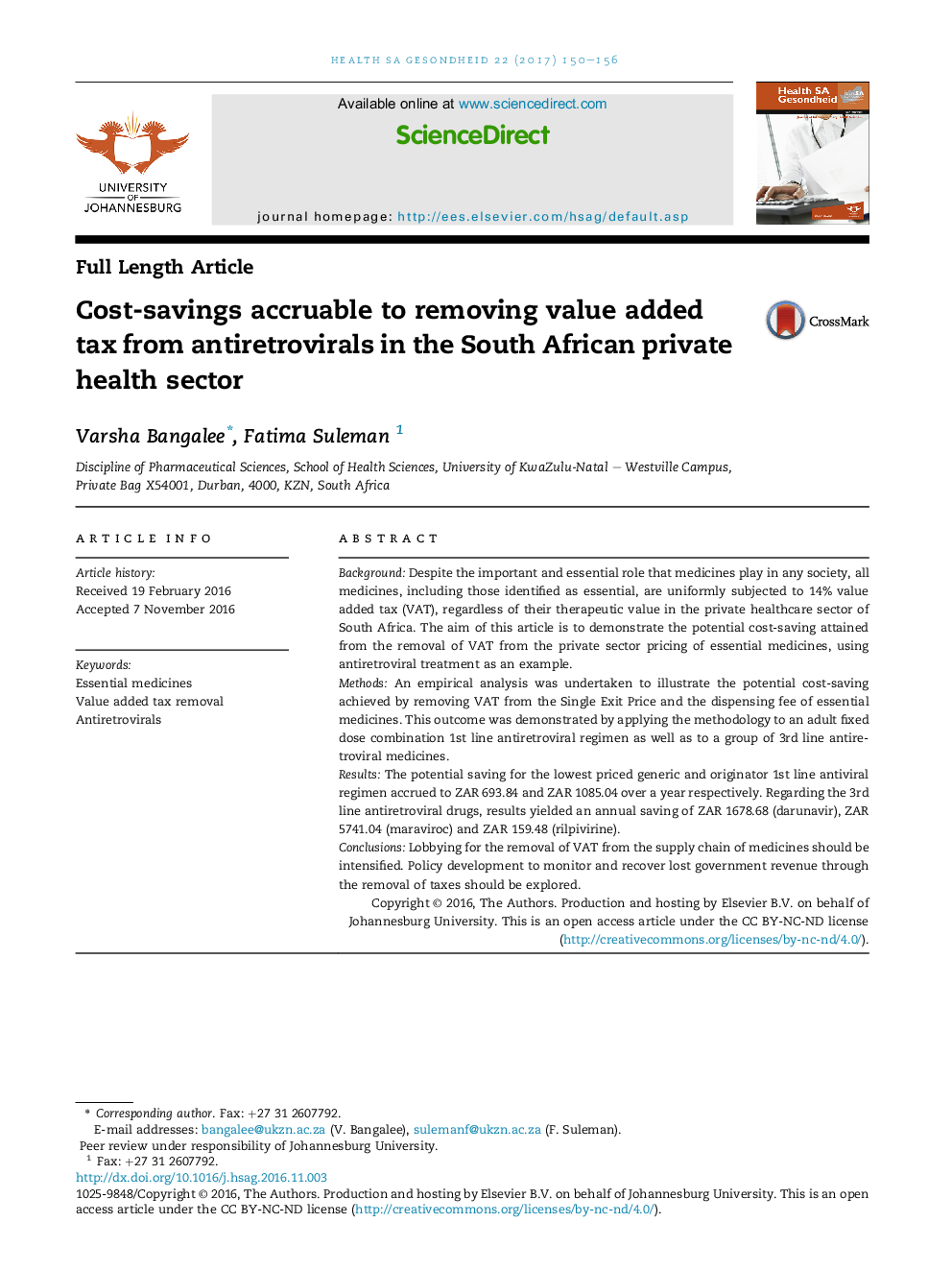| Article ID | Journal | Published Year | Pages | File Type |
|---|---|---|---|---|
| 5568030 | Health SA Gesondheid | 2017 | 7 Pages |
BackgroundDespite the important and essential role that medicines play in any society, all medicines, including those identified as essential, are uniformly subjected to 14% value added tax (VAT), regardless of their therapeutic value in the private healthcare sector of South Africa. The aim of this article is to demonstrate the potential cost-saving attained from the removal of VAT from the private sector pricing of essential medicines, using antiretroviral treatment as an example.MethodsAn empirical analysis was undertaken to illustrate the potential cost-saving achieved by removing VAT from the Single Exit Price and the dispensing fee of essential medicines. This outcome was demonstrated by applying the methodology to an adult fixed dose combination 1st line antiretroviral regimen as well as to a group of 3rd line antiretroviral medicines.ResultsThe potential saving for the lowest priced generic and originator 1st line antiviral regimen accrued to ZAR 693.84 and ZAR 1085.04 over a year respectively. Regarding the 3rd line antiretroviral drugs, results yielded an annual saving of ZAR 1678.68 (darunavir), ZAR 5741.04 (maraviroc) and ZAR 159.48 (rilpivirine).ConclusionsLobbying for the removal of VAT from the supply chain of medicines should be intensified. Policy development to monitor and recover lost government revenue through the removal of taxes should be explored.
